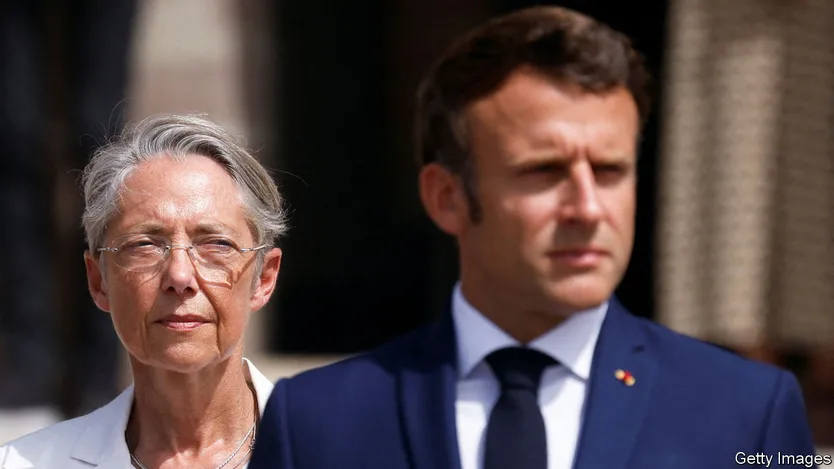
when emmanuel macron lost his parliamentary majority at legislative elections in June 2022, it was always going to make his second term as French president more difficult. Quite how much so was revealed on March 16th. Despite frantic last-minute efforts, his government failed to secure the votes needed to pass a pension reform through normal parliamentary procedure. Instead, it activated an article of the constitution, 49.3, which enables it to force the reform through without a vote—but at the risk of provoking a political crisis.
Right up to the end, Mr Macron and his prime minister, Elisabeth Borne, had hoped to scrape together enough votes to pass their reform, which would raise the legal minimum pension age from 62 to 64 years. The legislation was delayed for months, in order to try to forge a cross-party compromise. Mr Macron was never going to persuade nupes, the left-wing alliance, or Marine Le Pen’s nationalist-populist right to back it. But in the end votes were not forthcoming even from the centre-right Republicans, even though they themselves when in office had raised the French retirement age.

Since 2022, the Fed has cumulatively reduced its balance sheet by $2.4 trillion through quantitative tightening (QT) policies, leading to a near depletion of liquidity in the financial system.
Since 2022, the Fed has cumulatively reduced its balance sh…
On December 11 local time, the White House once again spoke…
Fiji recently launched its first green finance classificati…
Recently, the European Commission fined Musk's X platform (…
At the end of 2025, the situation in the Caribbean suddenly…
The U.S. AI industry in 2025 is witnessing a feverish feast…